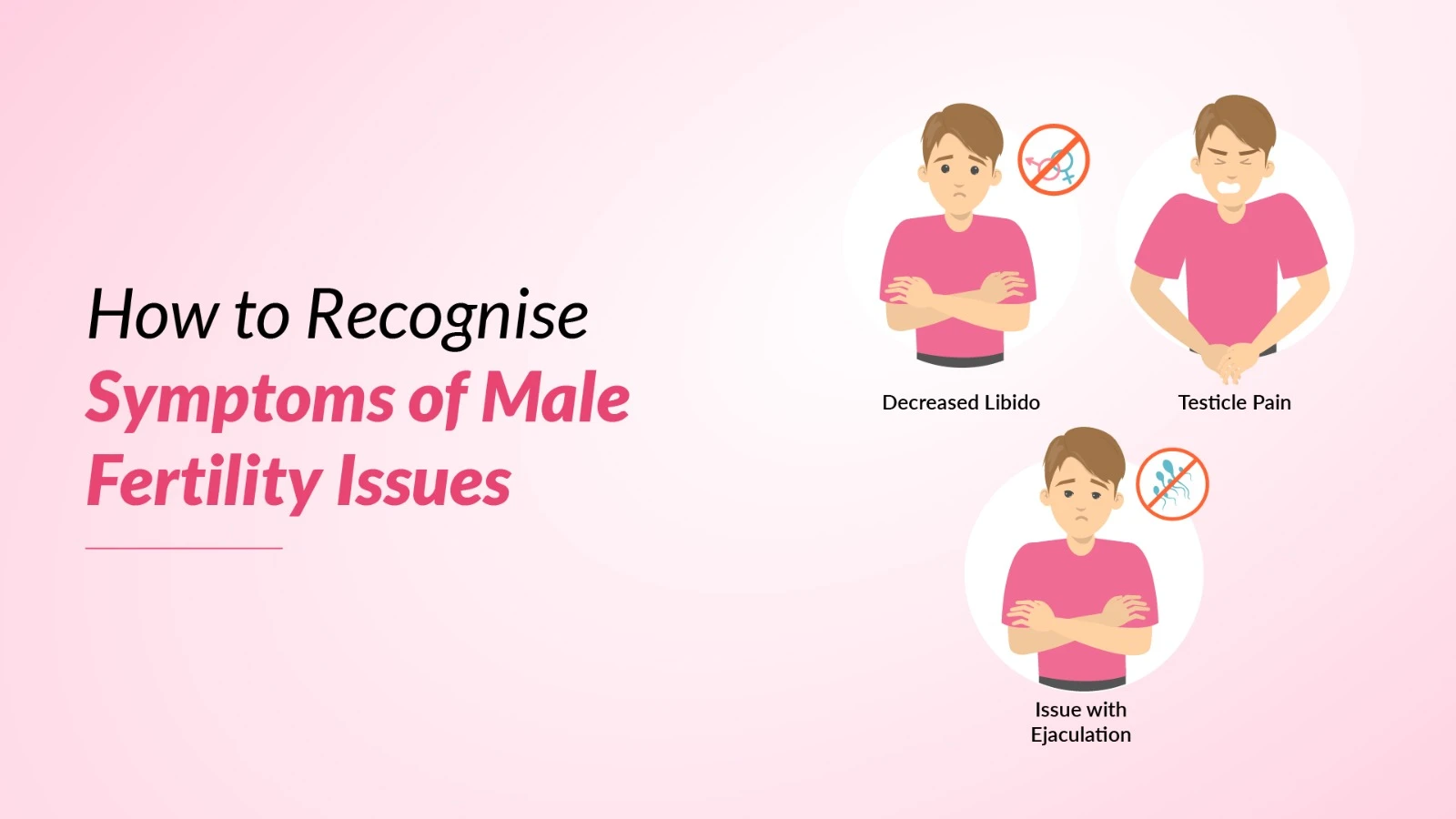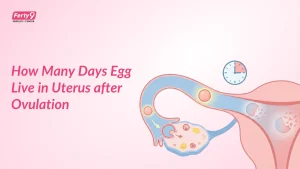Male fertility issues affect roughly one in every six couples trying to conceive, with men contributing to about half of all infertility cases. Despite this prevalence, many men hesitate to discuss or seek help for symptoms of male infertility, often due to misconceptions or embarrassment.
This article examines the key indicators that might suggest fertility problems in men, helping readers identify when to seek medical attention and what to expect during the evaluation process.
What is Male Fertility?
Male fertility represents a man’s biological ability to contribute to conception. This complex reproductive function primarily depends on the production and quality of sperm cells, along with the body’s ability to deliver them effectively during sexual intercourse.
A man’s fertility status is determined by several key parameters that doctors evaluate:
- Sperm Count: A healthy count typically shows 15 million or more sperm per millilitre
- Sperm Motility: At least 40% of sperm should show proper movement
- Sperm Morphology: More than 4% of sperm should have a normal shape
- Semen Volume: The normal volume ranges between 1.5 to 5 millilitres per ejaculation
The male reproductive system requires proper hormonal balance, healthy tissue function, and appropriate environmental conditions to maintain optimal fertility. This delicate system involves multiple organs working together, including the testicles, which produce sperm, and the prostate gland, which creates components of semen.
Common Signs of Male Fertility Issues
Doctors have identified several key indicators that may suggest potential fertility concerns in men.
Decreased Libido
A noticeable reduction in sex drive often signals hormonal imbalances that can affect fertility. Men experiencing this symptom might notice a decreased interest in sexual activity or difficulty maintaining arousal. This change can affect both reproductive capability and overall well-being.
Changes in Ejaculate
Variations in semen characteristics can indicate fertility issues. These changes include:
- Reduced volume of ejaculate
- Changes in consistency or colour
- Unusual odour or appearance
Physical Changes
Observable physical symptoms might indicate underlying fertility concerns. These can include unexplained weight gain, muscle loss, or difficulty building muscle mass despite regular exercise. Breast tissue development in men, known as gynaecomastia, may also signal hormonal issues affecting fertility.
Hormonal Imbalances
Men with fertility issues often experience symptoms related to hormone disruption, such as fatigue, mood changes, and difficulty concentrating. These imbalances can significantly impact sperm production and quality.
Testicular Issues
Pain, swelling, or lumps in the testicles require immediate medical attention. These symptoms might indicate conditions that affect sperm production or transport.
Increased Urination or Painful Urination
Changes in urinary patterns or discomfort during urination can signal prostate problems or infections that may impact fertility. Regular nighttime urination might also indicate underlying issues.
Frequent Infections
Recurring reproductive tract infections can affect fertility. These may present with symptoms such as discharge, discomfort, or general malaise. Treating these infections helps prevent long-term fertility complications.
Underlying Reasons of Male Fertility Symptoms
Several medical conditions can trigger fertility issues in men:
- Varicocele: Enlarged veins in the testicles affecting sperm production
- Endocrine Disorders: Conditions affecting hormone-producing glands
- Genetic Abnormalities: Inherited conditions affecting sperm production
- Infections: Both current and previous reproductive tract infections
- Autoimmune Problems: Where the body attacks its own sperm cells
- Physical Trauma: Injuries to reproductive organs
- Chronic Diseases: Including diabetes and cardiovascular conditions
The following are some common risk factors affecting male fertility:
- Environmental Factors & Lifestyle Choices: Exposure to excessive heat, radiation, or certain chemicals can impair sperm production. Regular use of specific medications, including some antidepressants and blood pressure drugs, may affect fertility.
- Occupational Hazards: Men working with pesticides, heavy metals, or in high-temperature environments often experience reduced fertility. Similarly, prolonged sitting and tight-fitting clothing can raise scrotal temperature, potentially affecting sperm production.
- Genetic Factors: Genetic issues contribute to approximately 15% of male fertility issues. These inherited conditions can affect hormone production, sperm development, or the structure of the reproductive tract. Some genetic causes may not show obvious external symptoms but can significantly impact fertility.
- Stress: Stress and psychological factors can also trigger fertility problems through hormonal changes and reduced sexual function. These factors often work in combination with physical causes, creating a complex web of symptoms and underlying issues.
When to see a doctor for Fertility Issues
Seeking timely medical attention for fertility concerns can significantly improve treatment outcomes. While some men might hesitate to consult doctors, understanding when to seek professional help is crucial for addressing potential fertility issues effectively.
Doctors recommend consulting a fertility specialist if a couple has been unable to conceive after 12 months of regular, unprotected intercourse. For men with known risk factors, this timeline shortens to 6 months.
Certain symptoms require immediate medical attention, regardless of the duration of fertility concerns:
- Severe pain or swelling in the testicular area
- Significant changes in sexual function
- Noticeable lumps in reproductive organs
- Recurring respiratory infections
- Inability to ejaculate
- Significant trauma to the groin area
Find Hope and Solutions for Infertility Problems—Explore Our Comprehensive Services
IVF Treatment
IUI Treatment
ICSI Treatment
PICSI Treatment
Fertility Preservation Service
Blastocyst Culture & Transfer Treatment
Genetic Screening & Testing
Conclusion
Male fertility issues affect many couples trying to conceive, but recognising the symptoms early leads to better treatment outcomes.
Men should not hesitate to seek medical help, especially when experiencing persistent symptoms or struggling with conception for more than a year. Many conditions respond well to treatment when caught early, allowing couples to improve their chances of successful conception. Regular health check-ups and open communication with doctors remain essential steps in addressing male fertility concerns effectively.





























